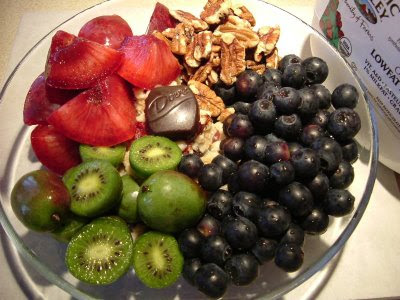- Aspirin, 325 mg daily.
- Acyclovir, 400 mg daily.
- Zantac (or generic ranitidine) with the dex.
Aspirin:
Recommended: 325 mg daily. I actually take two enteric-coated 81-mg tablets every morning with the acyclovir, and two more every evening with the CC-4047.
Aspirin reduces the likelihood of a deep-vein thrombosis (DVT). Both CC-4047 and DEX increase the probability of a DVT, and it is serious business. In my initial consultation with Dr L, I mentioned that when I was on thalidomide I had a pain in my calf, but I took a couple of aspirins and it went away. She leaned toward me, looked me straight in the eye, and said "YOU SHOULD NOT BE SELF-MEDICATING FOR A DVT!" Gulp. I guess I won't. The reason is that a DVT is a blood clot which can detach and travel to the lungs or the brain and cause heaps of trouble.
Aspirin can cause gastrointestinal ulcers. An enteric coating keeps the aspirin from being released until the tablet reaches the small intestine, where it is less apt to do harm. Most aspirin these days is enteric coated, which means that it is safer but does not work as rapidly.
In a recent presentation at a local support group meeting, a nurse told us that the amount of aspirin isn't critical. She said that aspirin has its effect on platelets, and once a platelet has been touched by aspirin it is changed and doesn't need more aspirin. Ever. Of course platelets die, and new ones are born, so daily aspirin is still necessary. I haven't googled this issue - just passing it along as if it were true.
A few months ago I asked my internist to do a coagulation check because of what I perceived as a bleeding problem. He did an INR and two other tests, but the results were perfectly normal. I was on daily aspirin at that time, same as now, so that's cool.
Acyclovir:
Recommended: 400 mg daily. I have a prescription from my internist for one 400-mg tablet daily.
Acyclovir is the generic name for an anti-viral medicine used to treat, among other things, various forms of herpes infections. In this case it is herpes zoster, also known as shingles, which can show up when a person's immune system is compromised, if that person has ever had chicken pox. I have.
Both CC-4047 and DEX can mess up the immune system. In fact DEX has a known and direct negative effect on the immune system. CC-4047, on the other hand, may enhance the immune system in several ways, at least as to the immune system versus myeloma cells (malignant plasma cells). Indeed, CC-4047 is known as an "immunomodulatory" drug, because it modifies the immune system. But CC-4047, like its relative Revlimid, may also decimate white cell counts, thus reducing the effectiveness of the immune system against herpes zoster.
While the normal use for acyclovir is to treat actual herpes outbreaks, daily acyclovir can inhibit some outbreaks and can reduce the intensity of outbreaks that do occur.
Ranitidine:
Recommendation: Dr L actually suggested either Zantac (ranitidine) or (I think) Prilosec (omeprazole), but my notes only seem to include Zantac. That was nine months ago, and now I don't remember why we didn't discuss Prilosec. She suggested taking a Zantac in the evening when I take the the DEX, and another the next morning when the DEX is having its maximum effect. There are two different strengths of ranitidine, 75 mg and 150 mg. I actually take generic ranitidine 75 mg tablets, one in the morning before DEX, one with the DEX, and the third the morning after DEX.
Ranitidine inhibits stomach acid production and is intended to treat heartburn. It should be taken 30 to 60 minutes prior to eating the food that would otherwise cause the heartburn. It has another beneficial effect, however: by reducing stomach acid it reduces the likelihood of gastrointestinal ulcers. DEX can contribute to ulcers, but the ranitidine may balance out that effect.
Omeprazole is a different kind of drug, called a proton pump inhibitor (who knew we have proton pumps?). It works more slowly, and I'd probably have to start at least a day in advance of the DEX, and take it for three or four days. I do get a very slight nausea from the ranitidine, so I might try the omeprazole some time, but not until I discuss it again with Dr L or her surrogate KDS.
Come to think of it, I should also ask Dr H, my naturopath, about ways to reduce the intestinal stress that causes ulcers.
I also take a slew of supplements.
The best web site for information on supplements is Margaret's Corner.

Salad & Dinner: Organic romaine lettuce, cucumber, boneless no-hormone no-antibiotics pork chops, organic cheese curds, avocado, Danish blue cheese, kiwi, filberts, organic broccoli, organic red wine vinegar.

